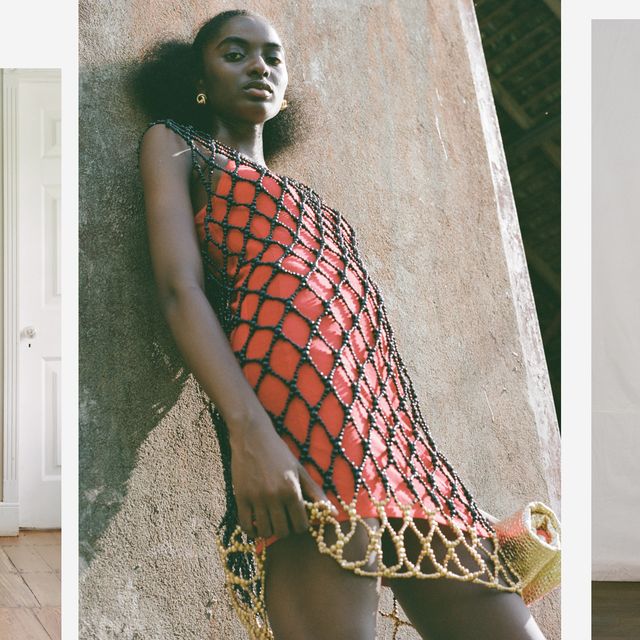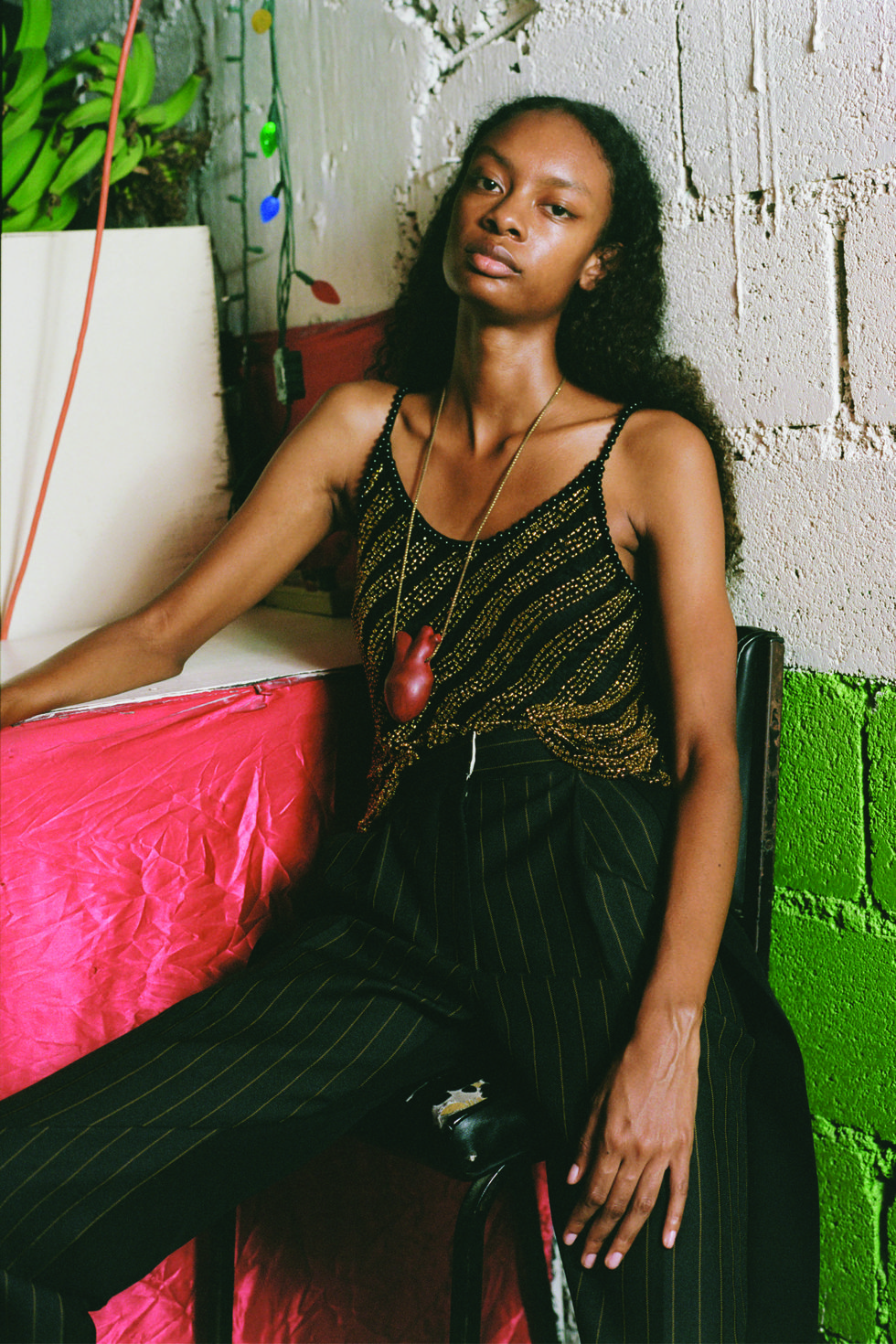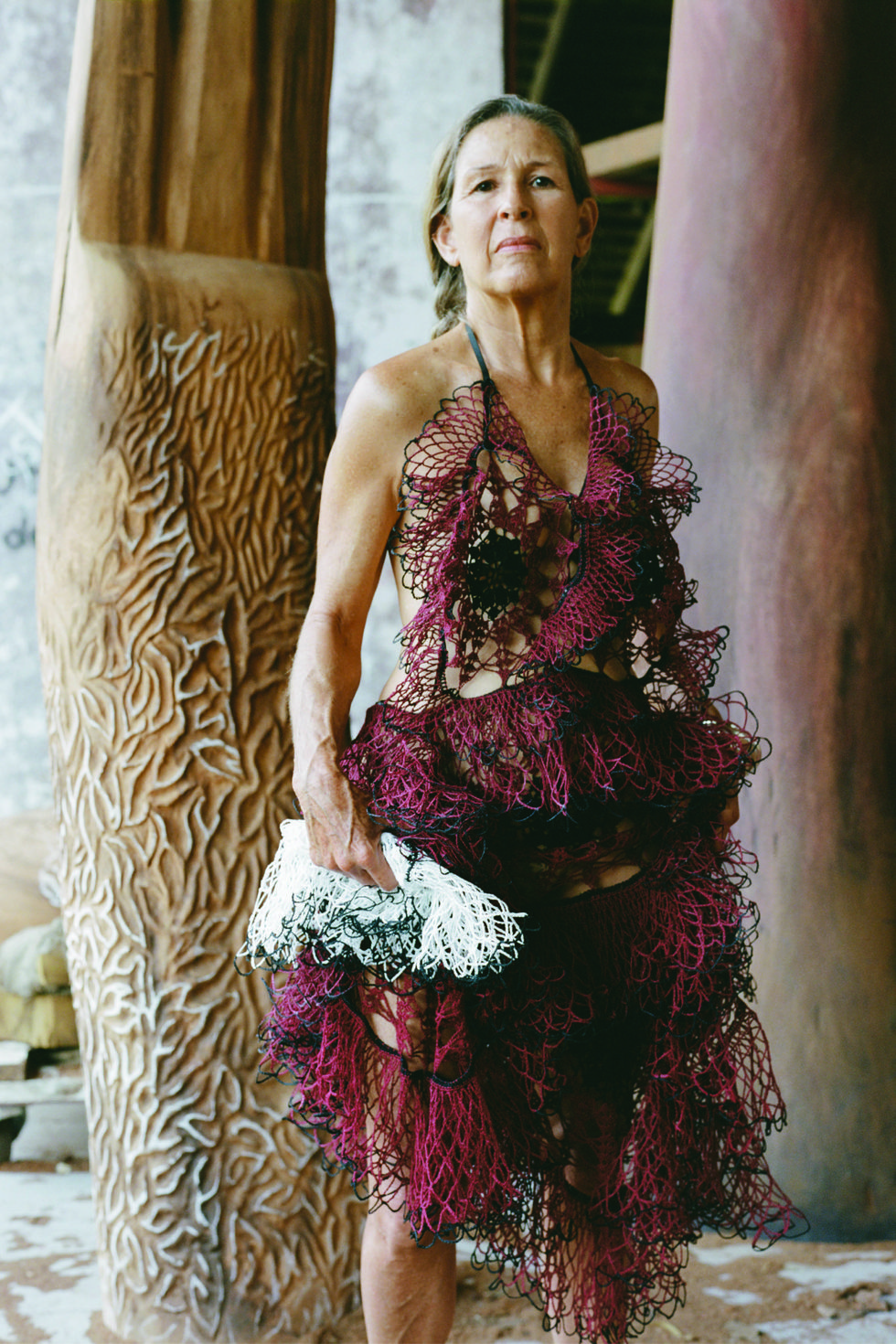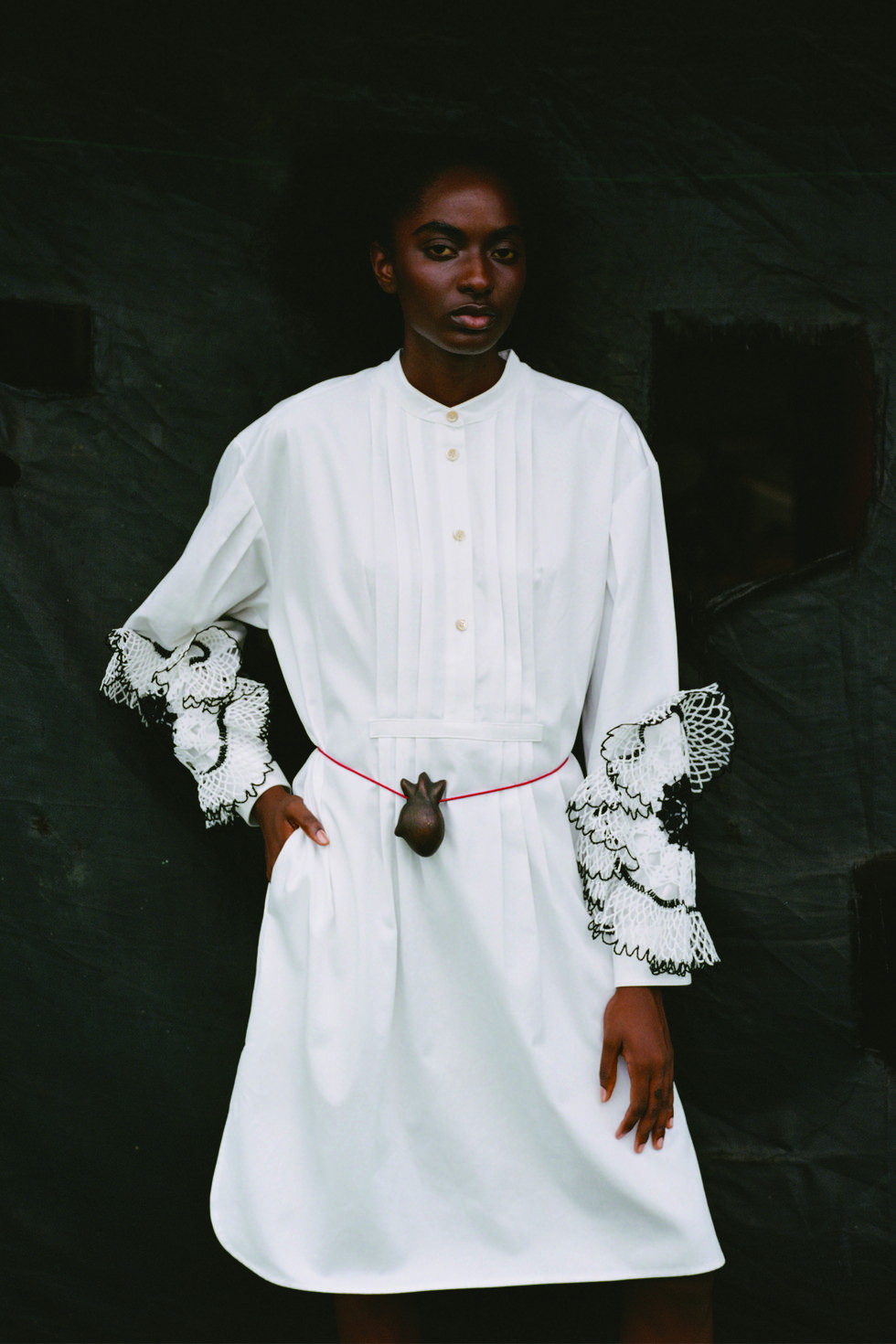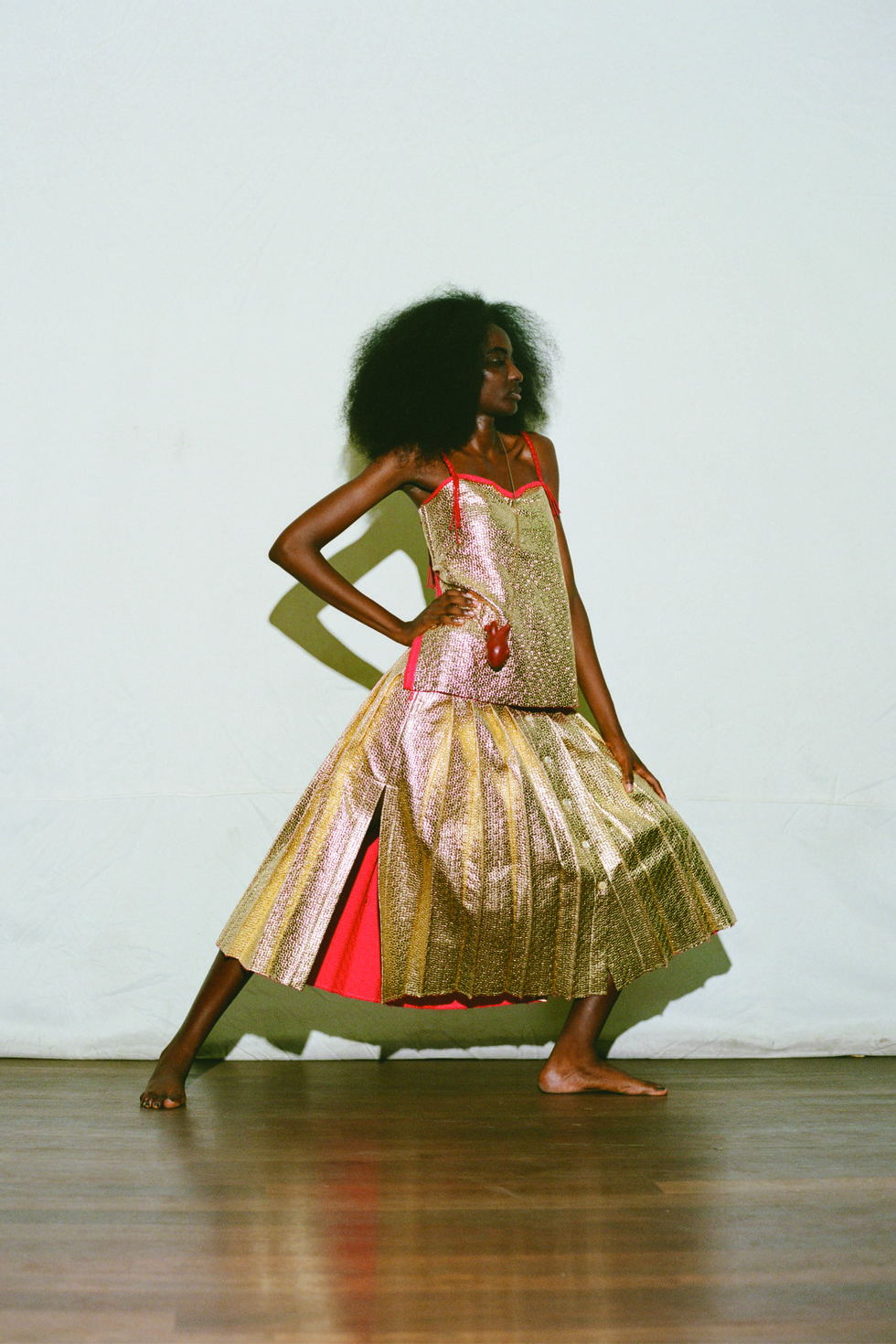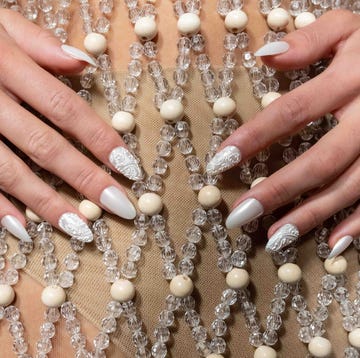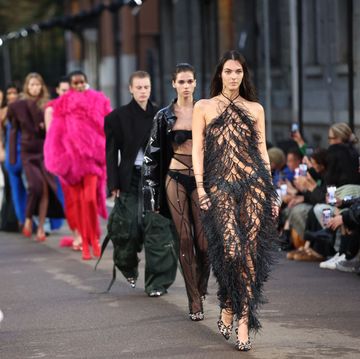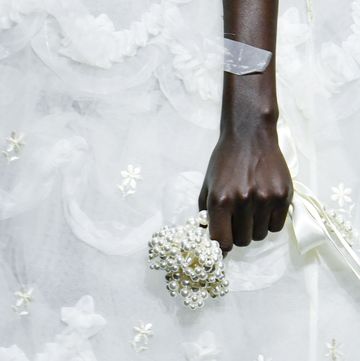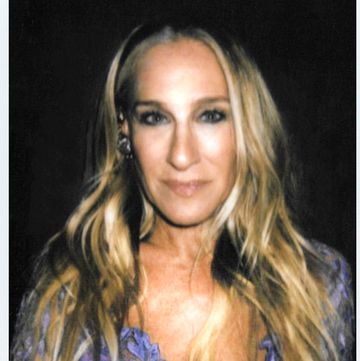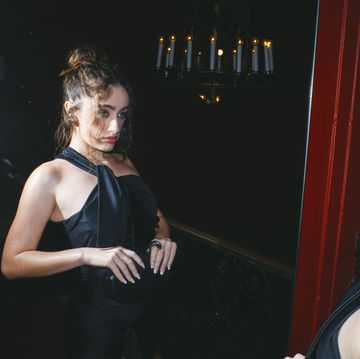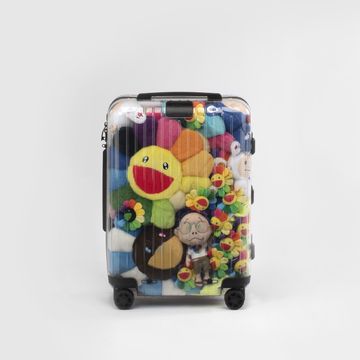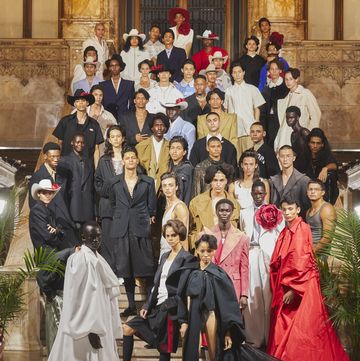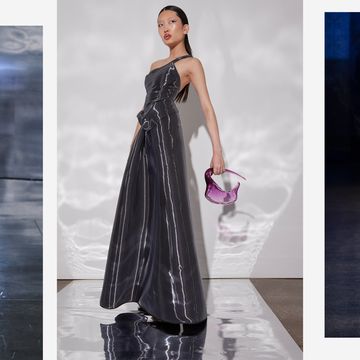In the series What I Loved Yesterday, Harper’s Bazaar editors highlight one standout look from the previous day at New York Fashion Week
To me, the crocheted pieces at Diotima look like sea creatures. The ruffles float on the air the way jellyfish tentacles spread out under water, slightly independent of each other, like each piece has a mind of its own. In the form of a dress, the crochet can make a woman look like some kind of ocean goddess (see, for example, Doja Cat in Harper’s Bazaar’s September issue.) In the brand’s spring 2024 collection, shown last night at a gallery space in West Chelsea, the crochet appeared spilling off the waistband of pleated pants, making the models look like they’d gone swimming in their work clothes and emerged appealingly bedecked with seaweed.
Diotima’s designer, Rachel Scott, was born in Jamaica, and the brand is deeply rooted in the life and history of the island nation. So the sea might be important on a metaphorical level, but the connection to Jamaica is literal and material. The crochet pieces are made in Jamaica by local artisans using traditional techniques. The beaded macrame dresses are a nod to beach cover-ups. Even the European materials in the tailored pieces are used in a way that centers a Caribbean perspective – on her website, Scott mentions that the tweeds from the UK are a reference to the Jamaican diaspora. It’s not uncommon to find designers looking to their personal heritage for inspiration, but Scott’s vision is more expansive. She’s thinking about a country, and a people, in the context of the world.
For the spring 2024 collection, Scott collaborated with another artist who can’t stop thinking about the history of Jamaica: Laura Facey, a sculptor who is best known for work addressing the legacy of slavery. Facey gave Scott a chalk drawing, called Seed, which the designer turned into a loose caftan that became one of the centerpieces of the show.
She also gave Diotima fist-sized versions of her carved wooden hearts — notably not Valentine’s Day hearts like the kind you might find on a locket, but carvings of the actual human heart. At the presentation, models wore them as necklaces, belts, and earrings. Like many of Facey’s sculptures, the effect was disturbingly body-centric: a reminder that at the end of the day, to be a human is to be vulnerable.
The show, in fact, was inspired by the literal end of the day: a Caribbean funerary tradition with African roots known as Nine-Night or Dead Yard. It’s the kind of wake that’s also a party, a celebration of the life of the deceased. Scott seems to thrive on this kind of tension: life and death, local and global, carefully controlled tailoring and loose explosions of crochet.
One look consisted of a pristine white shirt-dress with a pintucked bib. The model wore a carved heart strung around her waist, the rich brown material standing out against the crisp fabric. For a dizzying moment, I considered the fact that every single person in the (very crowded) room also had a heart beating away under whatever chic thing they were wearing. Ultimately, I think that’s what Scott is trying to do: make clothing that's beautiful on a surface level, but that never forgets about the layers and layers of levels underneath.
Izzy Grinspan is Bazaar's digital deputy editor. Previously, she was the deputy style editor at New York magazine's The Cut, and before that, she ran the gone-but-not-forgotten shopping website Racked.
